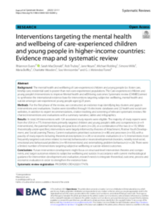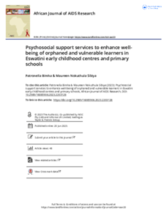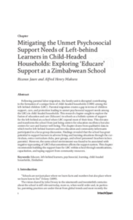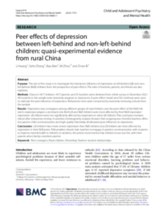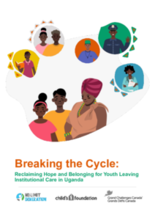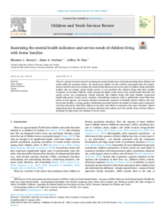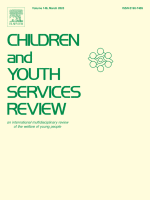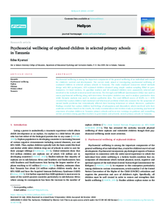Displaying 31 - 40 of 524
This global systematic review aimed to synthesise the international evidence base for interventions targeting subjective wellbeing, mental health and suicide amongst care-experienced young people aged ≤ 25 years.
This exploratory, sequential, mixed-methods study analyses factors that enhance the provision of psychosocial support services and the perceptions of educators towards psychosocial support delivery to orphaned and vulnerable learners in Eswatini.
This research chapter sought to explore the fusion of education and care in schools in Zimbabwe as a holistic system of support for the left-behind at a school where left-behind children expend most of their time.
The aim of the study is to investigate the interactive influence of depression on left-behind and non-left-behind children in China from the perspective of peer effects. The roles of teachers, parents, and friends are also explored.
This study sought to explore the prevalence of depression among orphaned adolescents in the selected children’s homes in Githurai Division, Nairobi County.
This is an introduction to the training series produced by Child's i Foundation and No Limit Generation and focuses on four key areas: trauma and stress, depression and suicidal thoughts, anxiety, and loss and grief.
This study utilized a large sample of treatment-seeking children across Ontario to compare children living with a foster family to non-foster children, across a number of psychosocial, care needs, and demographic variables.
This Children and Youth Services Review study performed a systematic review of research on training programs aiming the fostering of emotional and mental health in residential youth care. A systematic search was conducted in nine digital databases and other sources (websites, relevant journals, reference lists of included articles and relevant reviews), for publications from 1980 to 2021.
This Family for Every Child webinar focuses on the use of creative therapies in supporting the mental health of vulnerable children and youth.
This study aimed at investigating the psychosocial wellbeing of orphaned children in selected primary schools in Tanzania.

